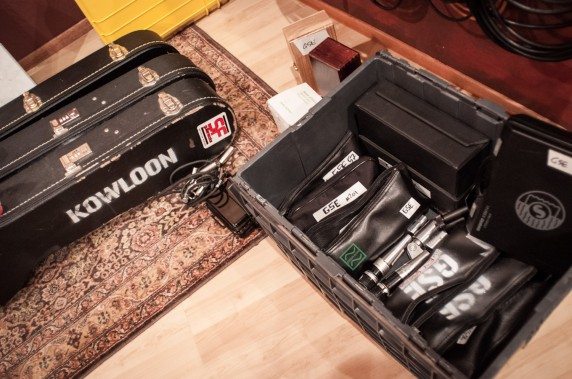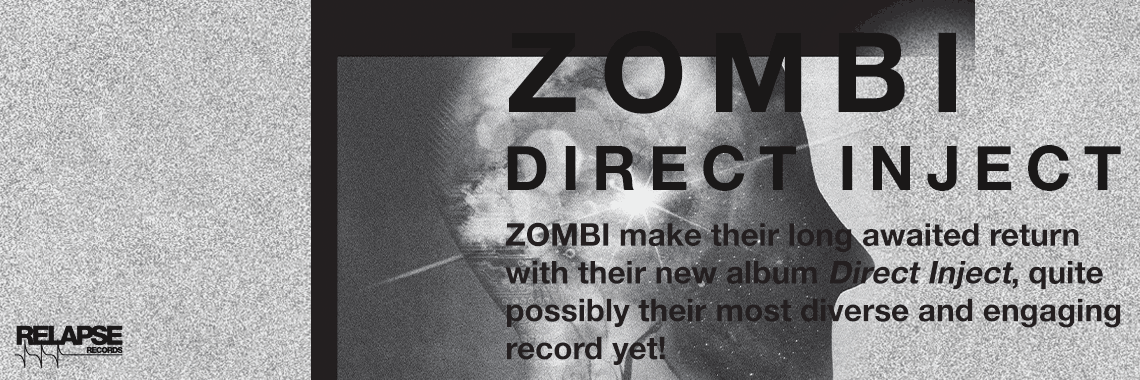by Ian Miller
There’s nothing like hearing a good drummer play a good drum kit in a room designed expressly for the purpose. In this case, the drummer is recovering from a head injury, but who can tell?
I’m Ian Miller. I play bass in Kowloon Walled City. We’re about to record our third record, and the road here has been interesting, to say the least. Since our split with Fight Amp and Ladder Devils came out two years ago, we’ve replaced a guitar player (Jon “Lovey” Howell joined on, after Jason “I used to like playing in bands” Pace moved to Seattle); our singer’s been sidelined for months with a painful throat injury (warning, pictures are not for the squeamish); and last month, our drummer got jumped on the way home from work.
Jeff was walking home through the Tenderloin when a group of people attacked him. He was knocked unconscious with a blunt object and robbed of… his fucking keys. The pictures he sent us the next day were bad — his right eye was bathed in blood and his face was swollen and purple. We didn’t know if there were skull fractures, hematomas, or worse. That was five weeks ago. Fortunately, a CT scan showed no broken bones or permanent damage, and more importantly, Jeff still remembered our new songs. Even though we lost a few important weeks of practice time, we decided to stick to our planned recording date. That brings us to today.

We’re at Sharkbite Studios in Oakland for four days of tracking. Four luxurious days! In an actual studio! That’s a major departure from our previous records, each of which were done over a weekend in our ghetto-ass practice space. Recording in a practice space has its charms, but we sold out in the name of a good drum room and a clean place to put the hummus and trail mix.

Our producer is guitarist/vocalist Scott Evans. Scott’s a talented recordist, and in our five years as a band, he’s recorded everything we’ve done. Having the recording guy in the band is a huge plus: any “pre-production” happens (and happens, and happens) during the writing process. And in the studio, there’s no interpersonal weirdness with some stranger. We trust Scott, and in turn he brings a clear sonic vision for us to work toward.

Sharkbite is an awesome studio, owned by Ryan Massey of American Steel. It has a nice old Trident console, a big drum room, and actual iso booths (luxury!). Scott works here fairly often, so load-in and setup were smooth, and getting drum and guitar sounds was fast and easy. Really, we came in knowing what we want to do and our sounds are all fairly dialed. But Jon and Scott did spend a little time digging into Jon’s guitar tone. Jon is a great guitarist, and nothing about his playing is conventional, including his tone. His typical sound is kind of obnoxious — shrill and honky, which works well as a counterpart to Scott’s straightforward, burly Les Paul tone. But capturing that kind of thing can be tricky, so Jon and Scott experimented with a couple of amp and pedal combinations. They settled on Scott’s Peavey VTM60, paired with Jon’s vintage Marshall cab. That VTM has paid for itself many times over — best $75 amp ever.

My bass rig is about as basic as it gets: Fender P-bass > distortion pedal > Ampeg SVT II Pro tube head > Ampeg SVT 8×10 cabinet. I’ve never had trouble with this setup, but of course tonight there was a nasty crackling sound coming out of the speakers, and at some point my amp shut down. We set about trying to diagnose the problem. It wasn’t the bass, and oddly, it didn’t seem to be the amp, so that left the cabinet. I have a backup bass and amp here, but who the hell brings a backup cab? Not me. I hopped in my car and drove home to grab my backup.

I got back 45 minutes later and hooked up the backup cab. It worked! That is, two of the six speakers worked. What in the fucking fuck. We took apart the cab and started dicking around — each speaker is wired in series, pairs are in parallel, I think? Maybe we can… uh… ah, fuck, I’m an idiot when it comes to this stuff. We succeeded in making the cab work less, then cut our losses in the interest of time. I took another trip home, collected my third-string bass cab (which I’ve been trying to sell for years, unsuccessfully, thank god), and another 45 minutes later we were in business. Apparently the third time really is the charm.
By then I was pretty tense and it was late, but we all wanted to play. After hours of setting up, getting sounds, and fighting with gear, tracking one song would feel good and leave us ready to tear shit up tomorrow. We picked a short song (working title: “Chunk,” which somehow morphed from “Chuck Billy.” For a while all our working titles were ’80s thrash references. “Diabetic Feet” was “Billy Milano” for its first year.), tuned up, and pressed record.
Real studio or shithole rehearsal space, we always record the same way: four dudes playing in a room. No click, no scratch tracks. This isn’t because we think it’s more “authentic” or anything — it’s just how we make music. It also means that basics don’t take forever. We play the song a few times, then we’re done.
After a few runthroughs, we collectively warmed up and got a solid take. By then it was midnight and everyone was fried — Jeff and I worked full days today before showing up at the studio, and Scott had been here since 11 am. So after a few listens, we called it a night. Once fatigue sets in, you spend more time, accomplish less, and everyone gets bummed out. Sleep it off and come back strong the next day: that’s some old-man recording advice you can take to the bank, whippersnappers.

** Kowloon Walled City’s new as-yet-untitled full-length is out soon on Brutal Panda Records. They don’t have a pre-order up yet, but you can shop and get other rad noise on wax for reasonable prices. Click HERE. Or go spend your $5 on some nasty Kombucha Wonder Drink.






